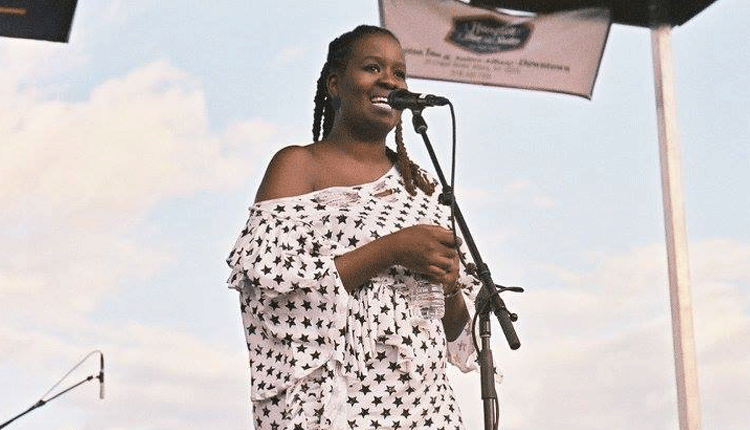Hail the African queen
By Christopher Owuor, September 14, 2021You named your successful 2014 debut album The Lagos Music Salon, which may seem strange since you come from Uganda, why that name?
The album is based on an 18-month creative sabbatical I took in Lagos, Nigeria in 2014. Each song is an experience of the people and the magic of Lagos.
How did you come about collaborating with oversees icons Gregory Porter and Common?
Thankfully, they are both in my artist community. It is a gift of living in New York city for so many years, I suppose.
They are both so generous in their own work, so I was grateful they agreed to contribute their voices and gifts to mine.
Tell us more about your upcoming single Milele, what is the inspiration that led to it?
It is a song that Miriam Makeba recorded at least three times in the course of her life and career.
She often sang it as a ballad, but the new album is all about reimagining Mama Makeba’s work.
My version is really meant to be a toast to her legacy and strength of African women in general.
I invited Seun Kuti and Thandiswa Mazwai to be a part of it, because they are a part of that legacy and their voices added all the more beauty to the song.
Tell us about working with the Spotify ‘EQUAL’ Initiative? What does it mean to you?
I was contacted to be a part of the initiative and I’m so grateful for it. The more I read about it, the more I realised how much it aligned with my own interests of championing female voices, especially African female voices.
The partnership with EQUAL is a reminder to be intentional when you want to amplify the voice and visibility.
It truly goes a long way and I am so appreciative of the new audiences the programme has introduced me to as well.
Being Rwandan-Ugandan, tell us more about your heritage?
My father was from Rwanda and my mother is from Uganda, but I mostly grew up between Zambia and the United States.
What was the experience like writing your musical Dreaming Zenzile?
There’s an expression that says “to write is to rewrite”. In a nutshell, writing a musical has been a process of discovery and revisions.
It has been a deeply rewarding journey as it is challenging me in new and thrilling ways as a writer, performer, and singer.
You are set to release a new album Zenzile that pays tribute to the iconic Miriam ‘Mama Africa’ Makeba. Why is Makeba such an inspiration to you?
She was the original, the first African artist to arrive on the global cultural stage so we are all, therefore, indebted to her for her sacrifice, fortitude, courage, and voice!
Your song Holy Room is intense and exudes both pain and freedom, how was it like writing it?
I wrote this song when islamophobia was becoming commonplace in the United States and our Muslim brothers and sisters were experiencing so much discrimination and people were equating the words “Allahu Akbar” with terrorism even though it means “God is great.”
Although I am not Muslim, I was deeply troubled and thought what better way to disarm hearts than to offer a song that reminded us that love is the most powerful force of healing.
So even though it is essentially a love song, the chorus of the song is “Allahu Akbar”.
My hope was that people would finally take the time to translate the meaning of those words and examine their own ignorance and hearts.
What advice would you send out to those interested in pursuing contemporary, ethnic and jazz fusion in East Africa?
The truth is the only thing that matters, so listen to your heart and honour who you are. That’s what people will connect to most.
How did you end up with the name Somi?
It is short for my middle name Kabasomi. It means child of knowledge in my mother’s language Rutooro from Western Uganda.
I was born when my father was finishing his post-doctoral fellowship.
